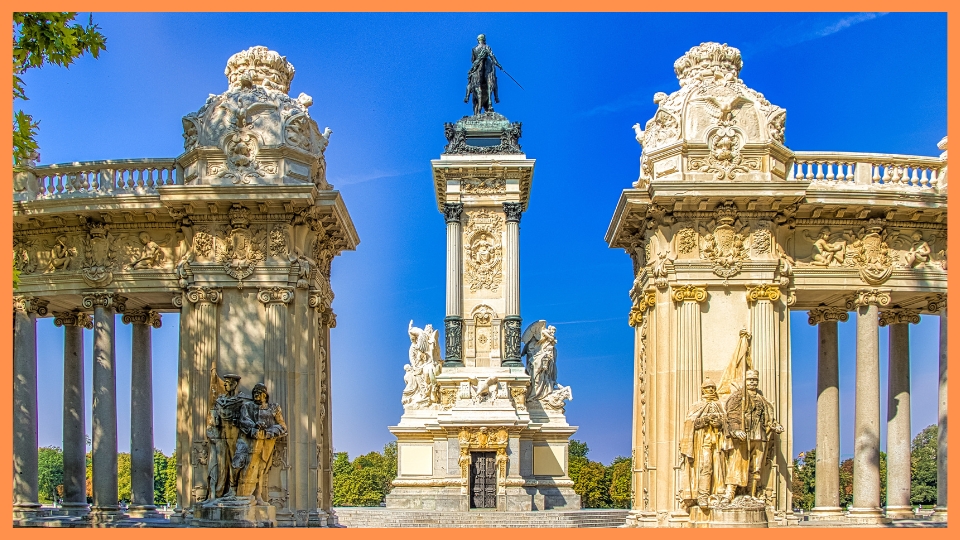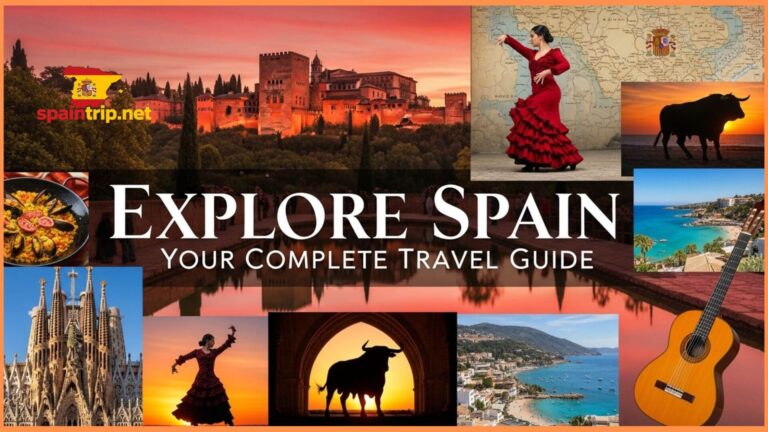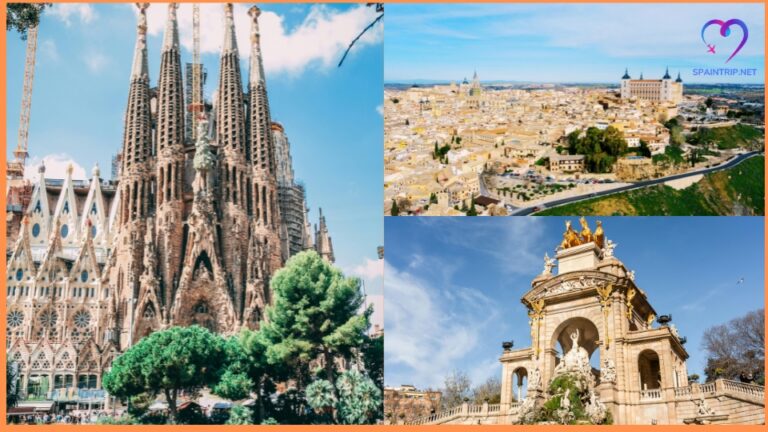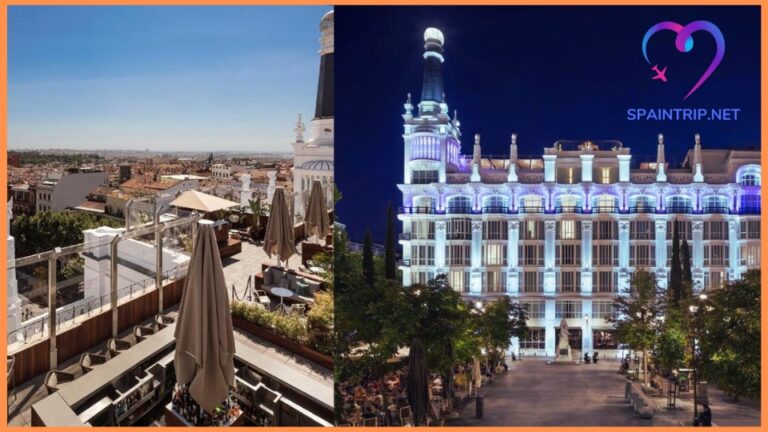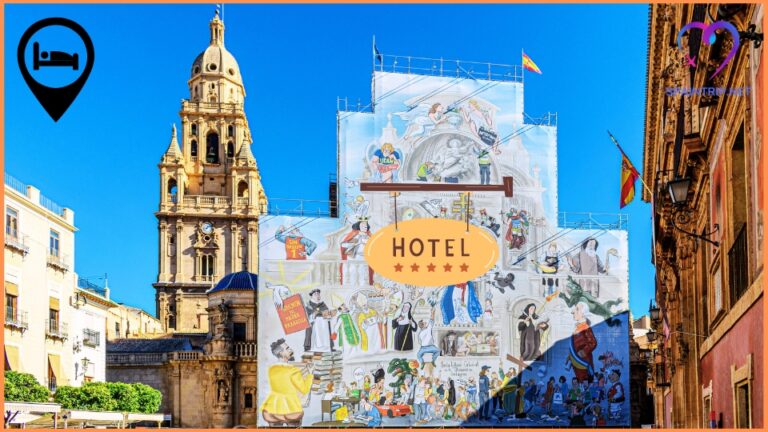Spain: A World Leader in Tourism
Spain is not just a country; it’s an experience that leaves an indelible mark on its visitors. With its vibrant culture, historical significance, and diverse landscapes, Spain stands as a global leader in tourism. But what makes Spain so irresistibly appealing? Let’s dive in and explore why millions flock to this European gem each year.
Historical Significance
Spain’s history is a tapestry woven with the threads of various civilizations, from the Romans and Visigoths to the Moors and Catholic Monarchs. This rich history is evident in the country’s architecture, festivals, and everyday life. Walk through the ancient streets of cities like Toledo or Granada, and you’ll feel like you’re stepping back in time.
Geographical Diversity
One of Spain’s greatest assets is its geographical diversity. Whether you’re a beach bum, a mountain enthusiast, or a nature lover, Spain has something to offer.
Beaches and Coastal Areas
The Costa del Sol, with its golden sands and crystal-clear waters, is a paradise for sun-seekers. The Balearic and Canary Islands offer stunning beaches and vibrant nightlife, making them popular holiday destinations.
Mountains and Natural Parks
For those who prefer mountains to beaches, Spain does not disappoint. The Pyrenees and the Sierra Nevada offer breathtaking landscapes and a plethora of outdoor activities, from hiking to skiing.
Major Cities and Their Attractions
Spain’s cities are as diverse as its landscapes, each offering unique attractions and experiences.
Madrid
Madrid, the capital, is a city of grandeur and elegance. The Royal Palace, with its opulent rooms and beautiful gardens, is a must-visit. Art lovers will be drawn to the Prado Museum, home to one of the finest collections of European art.
Barcelona
Barcelona is a city of art and architecture, thanks to the genius of Antoni Gaudí. The Sagrada Familia, still under construction after more than a century, is a testament to his vision. Park Güell, with its colorful mosaics and whimsical designs, offers panoramic views of the city.
Seville
Seville is a city of passion and romance, famous for its flamenco music and dance. The Alcázar of Seville, a stunning Moorish palace, and the Plaza de España, with its intricate tile work, are just two of the many attractions that make Seville a must-visit.
Famous Festivals and Events
Spain is known for its lively festivals and events, which attract visitors from all over the world.
La Tomatina
Held in the town of Buñol, La Tomatina is a festival where participants throw tomatoes at each other. It’s messy, fun, and a unique way to experience Spanish culture.
Running of the Bulls
This adrenaline-pumping event, part of the San Fermín festival, involves running in front of a group of bulls through the city’s streets.
Feria de Abril
Seville’s Feria de Abril is a week-long celebration of flamenco, bullfighting, and Andalusian culture. The city’s fairgrounds come alive with colorful tents, traditional music, and dancing.
Gastronomy
Spain’s cuisine is as diverse as its landscapes, with each region offering its own specialties.
Tapas Culture
Tapas are small dishes that are meant to be shared, and they’re a cornerstone of Spanish cuisine. From patatas bravas to jamón ibérico, tapas offer a little bit of everything.
Iconic Dishes
No visit to Spain is complete without trying paella, a rice dish typically made with seafood, meat, and vegetables. Gazpacho, a cold tomato soup, is perfect for hot summer days.
Wine Regions and Wine Tourism
Spain is one of the world’s top wine producers, with regions like Rioja and Ribera del Duero known for their exceptional wines. Wine tourism is a growing trend, with many wineries offering tours and tastings.
Beaches and Coastal Areas
Spain’s beaches are a major draw for tourists, offering everything from tranquil coves to bustling seaside resorts.
Costa del Sol
Located in the south of Spain, the Costa del Sol is famous for its sunny weather and beautiful beaches. Towns like Marbella and Málaga offer a mix of relaxation and vibrant nightlife.
Canary Islands
The Canary Islands, located off the coast of Africa, offer a unique blend of Spanish and African cultures. With their volcanic landscapes and stunning beaches, they are a paradise for nature lovers.
Balearic Islands
The Balearic Islands, including Mallorca, Menorca, and Ibiza, are known for their beautiful beaches and lively nightlife. Ibiza, in particular, is famous for its world-class clubs and parties.
Adventure and Outdoor Activities
Spain is a playground for adventure seekers, with a wide range of outdoor activities to choose from.
Hiking in the Pyrenees
The Pyrenees offer some of the best hiking trails in Europe, with stunning mountain scenery and charming villages along the way.
Skiing in Sierra Nevada
The Sierra Nevada, located in southern Spain, offers excellent skiing and snowboarding opportunities. With its sunny weather and modern facilities, it’s a great destination for winter sports enthusiasts.
Water Sports on the Mediterranean
The Mediterranean coast offers a wide range of water sports, from sailing and windsurfing to scuba diving and snorkeling.
Cultural and Art Scene
Spain’s cultural and art scene is vibrant and diverse, reflecting its rich history and modern creativity.
Flamenco Music and Dance
Flamenco is more than just music and dance; it’s a way of life in Spain. Experience the passion and intensity of a flamenco performance in cities like Seville and Granada.
Art Museums and Galleries
Spain is home to some of the world’s best art museums, including the Prado in Madrid and the Guggenheim in Bilbao. These museums house collections of works by Spanish masters like Picasso, Dalí, and Goya.
Architectural Marvels
Spain’s architectural heritage is a blend of different styles and influences. From the Moorish palaces of Andalusia to the modernist masterpieces of Gaudí, there’s something to marvel at around every corner.
Luxury Tourism
Spain is a top destination for luxury travelers, offering high-end accommodations, shopping, and experiences.
High-End Resorts and Hotels
Spain boasts some of the world’s finest luxury resorts and hotels. Whether you’re staying at a five-star beach resort on the Costa del Sol or a boutique hotel in Barcelona, you’re sure to be pampered.
Luxury Shopping Districts
Cities like Madrid and Barcelona are home to luxury shopping districts where you can find high-end brands and designer boutiques. Stroll down the famous Paseo de Gracia in Barcelona for a taste of luxury shopping.
Exclusive Experiences
From private yacht charters to gourmet dining experiences, Spain offers a range of exclusive experiences for luxury travelers. Enjoy a private tour of a vineyard in Rioja or a cooking class with a Michelin-starred chef.
Sustainable Tourism Initiatives
Spain is committed to sustainable tourism, with a focus on preserving its natural and cultural heritage.
Eco-Friendly Accommodations
Many hotels and resorts in Spain are adopting eco-friendly practices, from using renewable energy to reducing waste. Stay at an eco-lodge in the Pyrenees or a sustainable hotel in Ibiza for a green vacation.
Responsible Travel Practices
Spain encourages responsible travel practices, such as reducing plastic use, respecting local cultures, and supporting local businesses. Participate in eco-tours and volunteer opportunities to make a positive impact.
Preservation of Natural and Cultural Heritage
Spain is dedicated to preserving its natural and cultural heritage for future generations. National parks and UNESCO World Heritage sites are protected and maintained, ensuring that visitors can enjoy their beauty for years to come.
Tourism Infrastructure
Spain’s tourism infrastructure is well-developed, making it easy for visitors to explore the country.
Transportation Network
Spain has an extensive transportation network, including high-speed trains, buses, and flights. The AVE train connects major cities like Madrid, Barcelona, and Seville, making travel quick and convenient.
Hospitality Industry Standards
Spain’s hospitality industry is known for its high standards of service and quality. From budget hostels to luxury hotels, you’ll find accommodations to suit every budget and preference.
Tourist Information and Services
Tourist information centers are available in most cities and towns, offering maps, brochures, and helpful advice. Many attractions also offer guided tours and audio guides in multiple languages.
Economic Impact of Tourism
Tourism is a major contributor to Spain’s economy, providing jobs and driving investment.
Contribution to GDP
Tourism accounts for a significant portion of Spain’s GDP, with millions of visitors contributing to the economy each year. This revenue supports various sectors, from hospitality to transportation.
Employment Opportunities
The tourism industry provides numerous employment opportunities, from hotel staff to tour guides. Seasonal jobs are also available, particularly in popular tourist destinations.
Investment in Tourism Development
Spain continues to invest in tourism development, improving infrastructure and promoting new destinations. This investment ensures that Spain remains a top destination for travelers from around the world.
Challenges and Opportunities
While Spain is a leader in tourism, it also faces challenges and opportunities.
Managing Tourist Influx
Popular destinations can become overcrowded, impacting both residents and visitors. Spain is working to manage tourist influx by promoting lesser-known destinations and implementing visitor caps in certain areas.
Balancing Development and Conservation
Balancing development and conservation is crucial to maintaining Spain’s appeal. Sustainable tourism practices and responsible development help protect Spain’s natural and cultural heritage.
Future Trends in Tourism
Spain is embracing future trends in tourism, such as digitalization, wellness travel, and experiential tourism. These trends offer new opportunities for growth and innovation in the industry.
Spain’s allure as a top tourist destination is undeniable. From its rich history and cultural heritage to its stunning landscapes and vibrant cities, there’s something for everyone to enjoy. So pack your bags and get ready to explore this extraordinary country.
FAQs
What is the best time to visit Spain?
The best time to visit Spain is during the spring (April to June) and fall (September to November) when the weather is pleasant, and the crowds are smaller.
Is Spain a family-friendly destination?
Yes, Spain is very family-friendly with numerous activities and attractions for children, including theme parks, beaches, and cultural sites.
What are the must-try foods in Spain?
Some must-try foods in Spain include paella, tapas, gazpacho, and churros with chocolate. Each region has its own specialties, so be sure to try local dishes.
How is public transportation in Spain?
Public transportation in Spain is excellent, with an extensive network of buses, trains, and metro systems in major cities. The high-speed AVE trains are particularly convenient for traveling between cities.
What are some off-the-beaten-path destinations in Spain?
Some off-the-beaten-path destinations include the medieval town of Ronda, the Roman ruins of Mérida, and the stunning Picos de Europa National Park.

